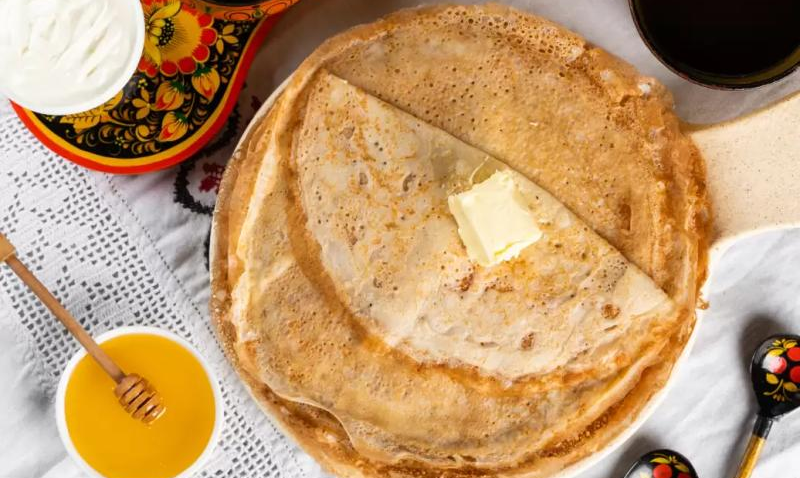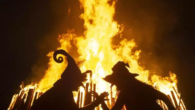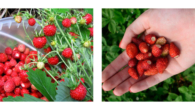
When is Maslenitsa in 2025: what Ukrainian traditions of this holiday exist, what does it mean?
0
Maslenitsa is a traditional Slavic holiday that has long symbolized farewell to winter and the call of spring. Throughout the week, people celebrate with various festivities, games, and delicious traditional dishes.
The history of Maslenitsa goes back more than one century. In pre-Christian times, this day was a spring holiday, later it was tied to the beginning of Lent before Easter (celebrated one week before). Therefore, the date of the celebration changes from year to year.
Although it is often still quite cold and frosty during this period, our ancestors used to say in ancient times: “Crack, don’t crack, Epiphany has already passed” and “It’s not until Christmas, but until Easter.” Also, Maslenitsa is often called Cheese Week, Cheese Sunday, Kolodiy, Babsky Holiday, Zagovyna or Zapusty.
When is Maslenitsa in 2025 in Ukraine: dates
Since this holiday is tied to the celebration of Easter and Great Lent, the dates of which change, Maslenitsa falls on different days every year. In 2025, it will be from February 24 to March 2.
What is done on Maslenitsa: celebrations by day
The first mentions of the celebration of Maslenitsa appeared in the 4th century in pre-Christian times. However, the introduction of Christianity in Ukrainian lands did not affect the traditions at all. People celebrate Kolodiy all week, and each day has its own rituals:
- Monday – they meet, ride sleds down ice hills (the further the sleds go, the greater the harvest will be);
- Tuesday – flirting, young people are paired up, fun games are played; Wednesday – delicacies, festive tables are bursting with delicious treats, usually dumplings with butter (hence the name of the holiday), cheeses, pancakes with various fillings; Thursday – noisy banquets with revelry until the morning; Friday – so-called “mother-in-law's parties”, the son-in-law must definitely invite his mother-in-law to visit him; Saturday – daughter-in-law's gatherings, when daughters-in-law invite their mother-in-law to visit;Sunday is forgiveness, it is a day when a special service is held in churches, priests and believers ask for forgiveness from each other.
Masnitsa has a special meaning today. This is a kind of transition from meat to lean dishes. After all, Great Lent begins immediately after it.
Who is burned on Shrovetide
In ancient times, there was an interesting rite among our ancestors, which included the birth, baptism and burial of Kolodius. This custom existed in many regions of Ukraine until the 1920s. The log was the personification of Winter (in the ancient times of Marena), which had to be burned at the end of the celebration to make way for spring.
Another interesting rite on Shrove Tuesday was “clinging a log” to the leg of a virgin. So the young man was “punished” for not marrying within a year and not continuing his family. The executed had to pay a ransom, which usually included a treat.
These days there was also a tradition of honoring deceased relatives. In some regions of Ukraine, dumplings with cheese, pancakes, butter were left for penance so that the souls of the ancestors would have something to eat at night.
What not to do on Shrovetide
This week it is forbidden to spin, because the moth will eat the yarn or clothes from it. It was also not allowed to prepare meat and cheese, otherwise the products would definitely spoil.
As on any other big holiday, it is better to refrain from quarrels. On the contrary, people asked for forgiveness for their actions and forgave their relatives and friends.
In general, it was believed that the funnier and louder you meet Masnitsa, the happier the year will be.









Leave a Reply